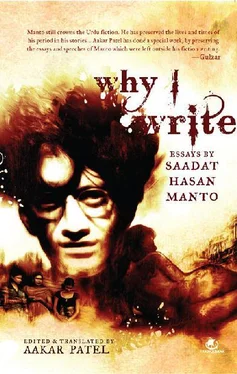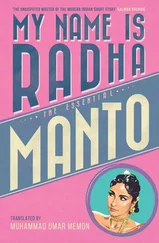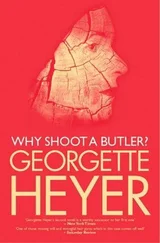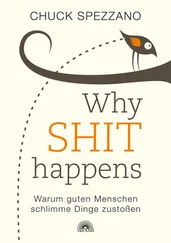I laughed out aloud. I folded the paper and put it in my pocket.
A little ahead was a shop burnt in the riots. A man now sat inside with two large slabs of ice on the floor. A thought came to me: ‘At last the poor shop has the chance to cool itself.’
Now some cycles were passing by. On one a man was riding with a burqa-clad woman on the carrier behind. A couple of minutes later, a similar couple went by but this time the burqa-wearing woman was sitting in front, on the handle.
Their cycle went over the skin of a watermelon and began to slip. The man braked. The slipping/stopping motion was too much and they tumbled.
I ran to help. The man was wrapped in the burqa and the poor woman was under the cycle. I lifted it and helped her up. The man disentangled himself from the burqa and said to me: ‘You stay away. We don’t need your help.’
He wrapped the burqa back haphazardly over the woman and sat her on the handle again. They left. I prayed there wasn’t another watermelon skin ahead.
I walked on. There was a sign on the wall that caught my eye. It was relevant. The headline said: “Muslim women and purdah”.
A little ahead I came to a familiar chowk, but the statue I had known was missing. I asked a man where it had gone.
‘It went,’ he said.
‘On its own?’ I asked.
He laughed: ‘No, they took it.’
‘Who?’
‘Those who owned it.’
I thought to myself, even statues were now refugees. There might come a day when corpses would also be dug up and moved across the border.
I was about to leave when a man, out for a stroll like me, said: ‘It hasn’t gone anywhere. It’s still here. And safe.’
‘Where?’ I asked.
‘In the museum.’
I prayed — ‘God, please don’t let me be around when they put people in the museum too because they are different.’
I moved on.
A refugee from Delhi and his little boy were walking on the footpath just ahead of me. The kid said, ‘Dad, let’s eat choley today.’
The father said sternly: ‘Not choley , it’s chaney .’
The kid said: ‘No dad, chaney is what we get in Delhi. Here they eat choley .’
Dad calmed down.
I had now reached Lawrence Bagh, my destination. It was the same place but lacked the usual bustle. There were no women around and I wondered why. The sound of blaring songs jolted me out of my thoughts and I realized where they were. Some walking around the path like corpses. And others probably being entertained in the zoo by something other than flowers and plants and the joys of nature. This depressed me.
Anway, as I was leaving, a man stopped me. ‘Is this Bagh-e-Jinnah?’
‘No,’ I said, ‘this is Lawrence Bagh.’
He laughed. ‘It was renamed Bagh-e-Jinnah after Partition.’
‘Pakistan Zindabad!’ I said to him.
He laughed louder and went into the park. I felt I was just coming out of hell.
— (Originally published as Savere Jo Kal
Aankh Meri Khuli )
Allama Iqbal died in 1938, a decade before Partition, but he is seen as a Pakistani poet. Iqbal was the writer of the poem, Tarana-e-Hindi, commonly known as Saare jahan se achcha, and was also one of the ideologues of a separate state for Muslims. He is today celebrated in Pakistan, though mainly as an icon, and more or less forgotten in India. Manto found himself in the surprising position of having to preside over the annual Iqbal Day in independent Pakistan. Surprising because he had no love for the Islamic State and, as he says here, he was not very keen on poetry. But the one thing he had in common with the man he was eulogizing was that both were persecuted. Iqbal for his heresies (he wrote a complaint against god, a great poem called Shikwa) and Manto because he rejected conventionalism of every sort. Both men, and this is also common to them, became heroes many years after their death. Iqbal for those who loved Pakistan and Manto for those who hated it.
Ladies and gentlemen and my fellow writers. For the honour of presiding over this, the first Iqbal Day, I want to thank you formally. However, seeing myself in this presiding chair, something else also comes to mind. I’m puzzled. Only till the other day, I was being abused and humiliated for my work and today. .
But then again, what happened with Allama Iqbal? In his time he was also abused and had to face the charge of being a heretic. On remembering this, my own bewilderment somewhat eased but then something puzzling occurred to me about my being here. I have as much association with the knowledge of poetry as Mahatma Gandhi had with cinema.
Anyway, I should make use of the opportunity that you civilized people have given me and so here goes.
I first became acquainted with Iqbal’s poetry through the bill of a bar I was drinking in. This was about fifteen years ago, when I was depressed with life as I tended to be in those days, and in fact tired of it. One night I was settling the account after having a couple of drinks when I spotted this line on the bill: “Life must be lived with danger.”
It was the timely advice of a fellow drinker perhaps, or the wisdom of the bartender. I must say that today it is different. Even if life itself were to tire of me, I would never be depressed by it. I could wager the most expensive thing on the most dangerous gamble and then square it off for no money at all. That line of Iqbal’s on the bill I agree with.
I became more familiar with his poetry in this same period. A friend gave me a copy of his book, Bal e Jibreel (Gabriel’s Wing) and pointed me to the couplet carrying an instruction from god. We read it together and it went:
Arise and wake the poor of my world
End tyranny and bring in the revolution!
In those days Iqbal was thought of as a Bolshevik and an agent of Russia. Today, in this independent Islamic state, the people who repeat this order from god are called Communists. They are tried under laws that prohibit their saying these words. It’s a miracle that Iqbal’s verse has escaped this justice.
The other day brought news that some refugee farmers in Punjab had set fire to a large store of grain. This was after their landlords had stolen the grain from the fields overnight and filled up their silos. It struck me when I read this that it wasn’t necessary for the artist’s message to reach the audience only through books, paintings and songs. When a true artist plucks a string, its vibrations remain for centuries and fill the atmosphere with his message. It reaches out and touches those it was meant for. How else did those illiterate farmers know of this couplet written years ago in Gabriel’s Wing?
The field that cannot feed even its tiller
Burn down every stalk that stands on it.
I’m not qualified to write about Iqbal’s philosophy and don’t want to say anything else. Yes, I have two disappointments which I find necessary to recount. The first one came when a poet of Iqbal’s caliber had to lavish praise on a false prophet. The other one I feel now. Iqbal wrote of the sky and land, the air and sea, of valley and mountain, of star and sun and moon — of all creation — as the inheritance of man. Today even his work is the preserve of a few self-appointed custodians. In our culture, it is common to find custodians of the graveyard. But Iqbal’s verse is alive, not dead. This squatting on his work is, if nothing else, against our traditions.
Iqbal had asked to be granted this wish: “Make my vision common.” This wish, from a pained heart, is sure to come true. But after witnessing it on soap packets, oil tins, hotel bills and laundry lists, it seems to me that though his words have been made common, his vision will take more time. As he himself said:
Читать дальше












